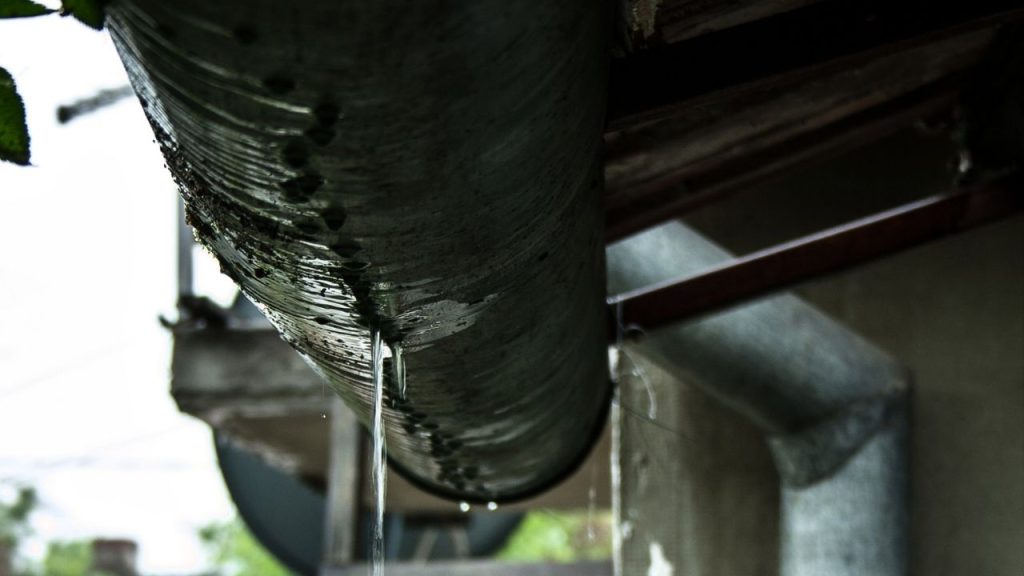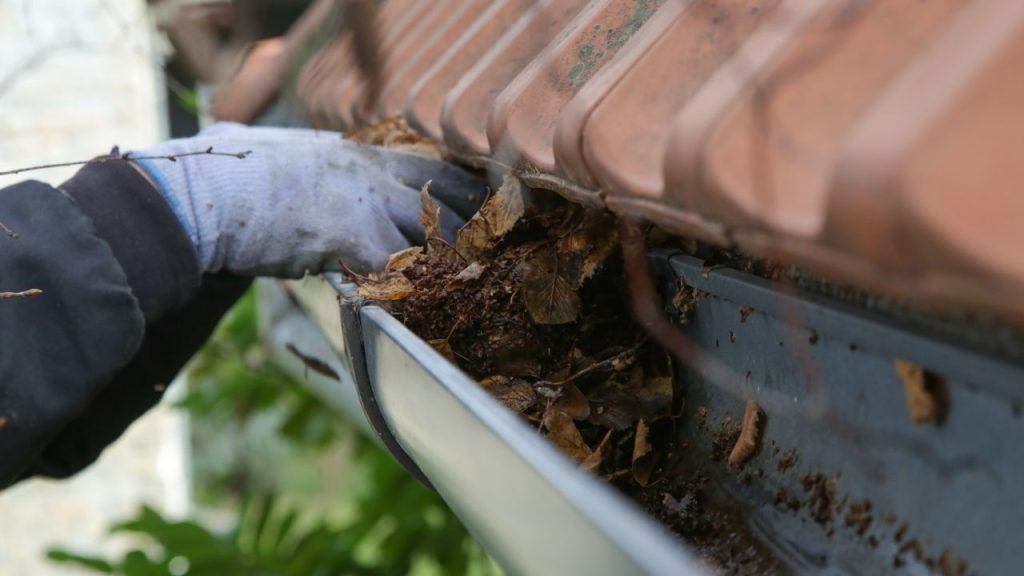In Georgia, the warm, humid climate and frequent rainfall can take a significant toll on your home’s gutters. Gutter issues in Georgia, such as clogs, leaks, and sagging, are common due to the region’s weather conditions. While gutters are designed to protect your home by channeling rainwater away from your roof and foundation, neglecting gutter issues in Georgia can lead to costly damage.
Understanding and addressing these common gutter issues in Georgia is crucial to maintaining the structural integrity of your home. By staying proactive and regularly inspecting your gutters, you can prevent many of the gutter issues in Georgia and protect your home from water-related problems.
Here are some of the most common gutter issues homeowners in Georgia face.
1. Clogged Gutters
One of the most frequent problems with gutters in Georgia is clogging, primarily due to falling leaves, pine needles, and debris from nearby trees. Georgia’s long growing season means trees shed their leaves in both the fall and spring, making clogging a year-round concern.
Clogged gutters can cause rainwater to overflow, leading to roof damage, siding rot, and even foundation issues if the water pools around your home. Regular gutter cleaning or the installation of gutter guards can help prevent clogs and ensure proper water flow.
2. Sagging Gutters
With Georgia’s frequent rainstorms, gutters can become overloaded with water, especially if they’re clogged. When this happens, the added weight can cause the gutters to sag or pull away from the roofline. Sagging gutters can’t effectively channel water away from your home, leading to potential damage.
Sagging is often a sign that your gutters were improperly installed or that they need reinforcement. Inspecting your gutters regularly and tightening the brackets that hold them in place can help prevent this issue.
3. Gutter Leaks
Leaks in your gutters can develop over time due to wear and tear, rust, or improper sealing at the joints. In Georgia, the frequent rainfall and fluctuating temperatures can cause expansion and contraction of the metal gutters, leading to cracks and leaks.

Leaks can cause water to pool around your foundation, which can lead to erosion or basement flooding. Sealing the leaks promptly or replacing sections of damaged gutters will help maintain the effectiveness of your system.
4. Improper Drainage
In Georgia, heavy downpours are common, and if your gutters aren’t sized correctly or if there aren’t enough downspouts, water won’t be able to drain quickly enough. This can cause water to overflow the gutters, leading to roof leaks, siding damage, and issues with your home’s foundation.
To avoid improper drainage, make sure your gutters are properly sized for your roof and that you have enough downspouts to handle the volume of water during heavy rain. It’s also important to ensure that downspouts direct water at least 6 feet away from your home’s foundation.
5. Rust and Corrosion
Due to the humid climate in Georgia, metal gutters—particularly those made of steel—are susceptible to rust and corrosion over time. Rust can weaken the gutters, leading to leaks, cracks, and eventual failure.
To prevent rust and corrosion, it’s important to inspect your gutters regularly, especially if you have steel gutters. Replacing sections of rusted gutters or opting for materials like aluminum or vinyl, which are resistant to rust, can extend the lifespan of your system.
6. Pest Infestations
Standing water in clogged gutters or poorly maintained systems can attract pests like mosquitoes, ants, and even rodents. Georgia’s warm climate is ideal for insect breeding, and stagnant water in your gutters provides the perfect environment for pests to thrive.
Cleaning your gutters regularly and ensuring proper drainage will prevent standing water and reduce the likelihood of pest infestations.
7. Foundation Damage
One of the most serious problems that can arise from gutter issues in Georgia is foundation damage. If your gutters are clogged, leaking, or sagging, water may pool around your home’s foundation instead of being directed away. Over time, this can cause the soil around your foundation to erode, leading to cracks, settling, or even basement flooding.

To prevent foundation damage, it’s crucial to maintain your gutters by cleaning them regularly, repairing leaks, and ensuring proper downspout placement to direct water away from your home.
How to Prevent Gutter Issues in Georgia
Preventing gutter issues starts with regular maintenance. Here are a few tips to keep your gutters in good shape:
- Clean your gutters twice a year: Regularly remove leaves, pine needles, and other debris to prevent clogs.
- Inspect your gutters: Check for leaks, rust, or sagging sections after heavy storms or at least twice a year.
- Install gutter guards: These help reduce the amount of debris that can enter your gutters, making maintenance easier.
- Ensure proper drainage: Make sure downspouts are clear and direct water away from your home’s foundation.
Conclusion
Gutters are essential for protecting your home from the heavy rainfall and humidity that Georgia experiences. Staying proactive and addressing common gutter issues in Georgia, such as clogs, leaks, and sagging, is crucial for preventing costly damage to your roof, siding, and foundation.
Regular maintenance and inspections can help you stay ahead of gutter issues in Georgia, ensuring your gutters function properly. By prioritizing the prevention of gutter issues in Georgia, you protect your home from water damage and maintain its structural integrity year-round.

